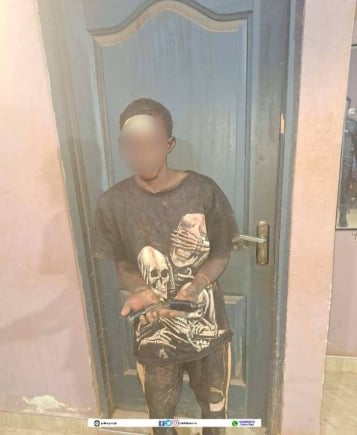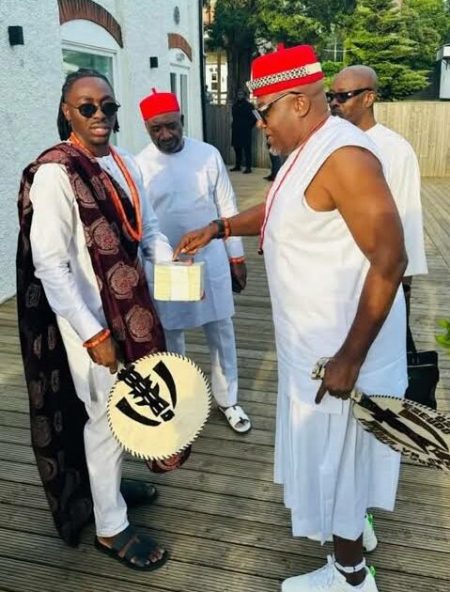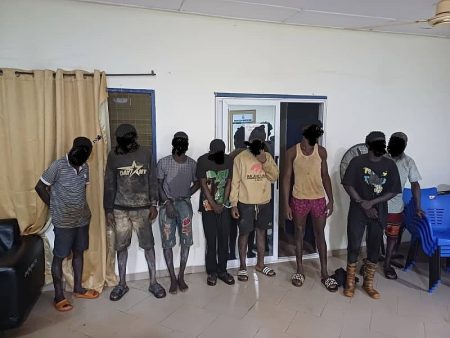The controversy surrounding the origin of Adire, a traditional Yoruba tie-and-dye textile, has ignited a heated debate between the Egba people of Ogun State and the Governor of Osun State, Ademola Adeleke. The dispute erupted following a viral video in which Governor Adeleke, while hosting the Chief of Staff to the President, Femi Gbajabiamila, claimed that Adire originated in Osun State, specifically his hometown of Ede, and was later “stolen” by the Egba people. This assertion has sparked outrage among Adire traders and cultural custodians in Abeokuta, the historical heartland of Egba culture, who vehemently refute the governor’s claims and demand a retraction and apology.
The Iyaloja of Kemta Adire/Kampala Market in Itoku, Abeokuta, Chief Somodale Akamo, has emerged as a prominent voice in this dispute. She has publicly condemned Governor Adeleke’s statement, characterizing it as not only inaccurate but also deeply offensive to the Egba people. Chief Akamo argues that Adeleke’s claim is a blatant attempt to rewrite history and undermine the Egba people’s long-standing association with Adire production. She insists that Adire is an integral part of Egba heritage, a craft passed down through generations since the 13th century, long before the founding of modern Abeokuta in 1830.
The Egba people’s connection to Adire is deeply rooted in their history and cultural identity. According to Chief Akamo, the craft flourished in Abeokuta after the Egba people settled there in 1830. Madam Jojoyinola, the second Iyalode (female chief) of Egbaland, is credited with playing a pivotal role in promoting and expanding the Adire trade, empowering countless individuals and propelling the craft onto the global stage. This historical narrative, deeply ingrained in the collective memory of the Egba people, stands in stark contrast to Governor Adeleke’s claim of Osun’s primacy in Adire production.
The controversy highlights the cultural and economic significance of Adire to both Ogun and Osun states. For the Egba people, Adire represents more than just a textile; it is a symbol of their heritage, resilience, and entrepreneurial spirit. The craft has provided livelihoods for generations and continues to be a source of pride and cultural identity. Governor Adeleke’s claim, therefore, touches a sensitive nerve, perceived as an attempt to diminish the Egba people’s contribution to the rich tapestry of Yoruba culture.
The dispute over Adire’s origins also underscores the importance of accurate historical representation and the potential for cultural claims to escalate into inter-communal tensions. While Governor Adeleke’s intention might not have been malicious, his statement has nonetheless ignited a firestorm of controversy, highlighting the need for careful consideration when discussing sensitive cultural issues. A thorough and unbiased examination of historical evidence is crucial to avoid misrepresentations and promote a more nuanced understanding of cultural heritage.
Moving forward, a constructive dialogue between stakeholders in both Ogun and Osun states is essential to resolve this dispute amicably. Recognizing the shared cultural heritage of the Yoruba people, it is important to acknowledge the contributions of various communities to the development and dissemination of Adire. Rather than engaging in divisive rhetoric, a collaborative approach that celebrates the rich artistic traditions of both states would be more beneficial. This could involve joint exhibitions, workshops, and research initiatives that showcase the diverse expressions of Adire and promote its continued growth and appreciation. Such collaborative efforts would not only foster cultural understanding but also contribute to the economic empowerment of Adire artisans in both states.














